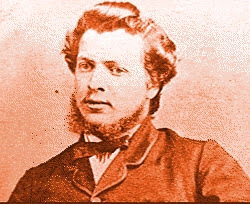The following article was in the Winnipeg Free Press this past weekend. The article causes you to pause and think. As Métis Mama, I have expressed in the past that I believe the Government of Canada (both the Liberals and the Conservatives) should have supported the UN Declaration on the Rights of Indigenous People. They have been involved in the proposing and amending of the text and at some point their position is embarrassing but even more disconcerting was the statement in the article: "Earlier this week, Canada was the only country to vote against -- there were 33 for and 13 abstentions -- a resolution condemning Israel for its invasion of Gaza."
I guess if they won't take a stand after what seems to be a global outcry or at the least abstain from the vote .... what chance do Aboriginal people have of ever negotiating their rights. That is why so much money continues to be spent in court rooms - defining the boundaries of Aboriginal rights. Another colossal waste of tax dollars that make lawyers rich in the courtrooms and never at a bargaining table where the resources could be spent on issues that benefit everyone.
http://www.winnipegfreepress.com/breakingnews/on_the_un_hot_seat.html#
OTTAWA — Do you like to think Canada is a haven for human rights? When you hear of atrocities in other countries, do you pat yourself on the back and think at least it doesn’t happen here? If you do, chances are you haven't been to a First Nation in Canada lately.
The abject poverty of Canada's aboriginal people -- the overcrowded houses riddled with mould, the high levels of violence and addiction, poor levels of education, massive unemployment and literacy rates that should make a western nation blush -- all are part of a picture of Canada's commitment to human rights that could earn the country a big fat "F" from the United Nations Human Rights Council next month.
"Canada is such a champion on the world stage of human rights, but when it comes to its own indigenous people, it's a different story," said Craig Benjamin, a spokesman for Amnesty Canada, one of 50 non-governmental agencies that have written to the UN slamming Canada's human rights record at home.
The UN Human Rights Council is launching a process to review the human rights record of all 192 member nations of the UN. Canada is one of 48 countries that will go under the spotlight this year. Our time in front of the committee begins early next month.
Canada is no stranger to being at odds with the UNHRC. Earlier this week, Canada was the only country to vote against -- there were 33 for and 13 abstentions -- a resolution condemning Israel for its invasion of Gaza. Like its predecessor, the UN Human Rights Commission, the council focuses much of its criticism on Israel.
In an editorial two years ago, the Free Press called the council "a lie, a Potemkin village designed to let the UN pretend that it actually cares about human rights."
Still, it carries the UN brand and its criticisms will be a welcome tool for aboriginal groups applying pressure on the federal government.
While Canada itself has submitted a report to the UN that outlines a long list of ways the country is committed to human rights, the non-governmental organizations (NGOs) are accusing the government of providing a glossed-over look at its programs that borders on flat-out falsehood.
"At best, they are using language to try and make Canada look good without just being honest about where we are," said Kathy Vandergrift, chairwoman of the Canadian Coalition for the Rights of Children.
For example, the report says aboriginal housing is a priority and points to a program supporting the construction of 2,300 new homes and renovations to 3,300 existing homes on reserves.
But that, says the Assembly of First Nations, is not even a drop in the bucket. The AFN submission to the UN says 44,000 houses on First Nations need major repairs and if housing in First Nations was at the same standard as the rest of Canada, another 87,000 new houses would have to be built.
In Garden Hill, for example, one of the largest reserves in Manitoba, one in every two homes is in need of major repairs, according to Statistics Canada.
That same reserve has no running water or sewers, forcing residents to cart water from wells around the reserve and use outhouses when it is 40 below. Fewer than one in four people are employed, and fewer than one in five finish high school.
Those are the kind of statistics, says National Chief Phil Fontaine, that beg the attention of Canadians.
"Canadians are fair-minded," said Fontaine. "If they knew better than they do about why we're so impoverished, they'd bring considerable pressure on the Canadian government to do the right thing."
He's hopeful the UN process goes a long way to attracting that attention.
Amnesty's Benjamin said he thinks the process might force Ottawa to act, because a public shaming by a body Canada helped create -- and lobbied to be a member of -- would be hard for the government to ignore.
"When you seek to be a member of this council, you are making a commitment to human rights," said Benjamin. "It would be quite contradictory to seek membership and then ignore the recommendations."
Among the bigger problems raised with the UN was Canada's refusal to sign the UN Declaration on the Rights of Indigenous People in 2007.
Canada then and now says that declaration was overly vague and was inconsistent with the Canadian Charter of Rights and Freedoms. Instead, Canada says it will ensure the rights of indigenous people its own way, including through legislation passed last year that eliminated the exemption of First Nations from being subject to the Canadian Human Rights Act.
Manitoba MP Rod Bruinooge, a Métis and former parliamentary secretary for Indian Affairs, said last summer the extension of the act meant the federal government could no longer legally ignore the Canadian Human Rights Act when making decisions about First Nations.
"The double standard of human rights protection for some but not for First Nations people is gone and it is gone forever," Bruinooge said in a speech at the Assembly of First Nations annual meeting in July.
But Fontaine says that legislation in and of itself violated the spirit of human rights because it wasn't created with an appropriate level of consultation with First Nations. Fontaine said the government can't pretend to have extended human rights to First Nations when it still refuses to endorse the UN declaration.
"The unfortunate message we received from this is that this government is going to pick and choose what human rights it will defend," said Fontaine. "It is a stain on Canada's international reputation."
Benjamin said Canada's refusal to sign that agreement is an oddity, and even worse is Canada's claim that because it didn't agree with the declaration, it doesn't apply in Canada.
"That breaks apart the whole notion that human rights are universal," said Benjamin. He said Canada, of all countries, can readily afford to ensure the rights of aboriginal people are protected.
"If Canada doesn't do it, what does that say to the rest of the world?" he asked.
He added the fact a country as rich and developed as Canada has an entire segment of the population with such undeniably poor living situations is a huge blight.
"Canada is such a champion on the world stage of human rights. But when it comes to indigenous people, it is a different story," said Benjamin.
The differences in standard of living for Canada's First Nations people is stark. From housing to education, health to family finances, the experience of most aboriginal Canadians is bleak.
One in every four First Nations children lives in poverty, and seven in 10 will never finish high school. Unemployment on some reserves exceeds 90 per cent, adding stress to overcrowded living conditions, shoddy housing and, in many communities, no running water or functioning sewer system. First Nations people have shorter life expectancies, and are far more likely to be victims of violence, particularly First Nations women.
Amnesty Canada says young First Nations women are five times as likely to die a violent death as other women their age. Benjamin says what's frustrating is that even though there has been a recognition of that from all levels of government, next to nothing is being done.
"To pass it off to say we've given funding for public education is pretty disappointing," said Benjamin.
The AFN says the government has been told repeatedly it is chronically underfunding aboriginal children in areas such as education, child welfare and housing. And many times the government itself has acknowledged that to be true, including in the report to the UN.
But Fontaine says the fact the government has failed to actually do anything about it is taken by the AFN as an indication the underfunding is deliberate.
Benjamin says government inaction in the face of knowing the reality, is likely a result of racism -- both endemic to government itself and to the Canadian people who aren't demanding more from the government.
Three years ago, an agreement between Ottawa, the provinces and aboriginal leaders was supposed to have been a major step towards closing the gap in the standard of living of aboriginal peoples and the rest of Canada. Known as the Kelowna Accord, the $5-billion agreement was to have dealt with a number of areas, including investing in housing, education, economic development and health care.
Benjamin says Kelowna alone would not have meant a complete improvement towards ensuring the rights of Canada's aboriginal people.
"Funding alone has never been the solution," said Benjamin. "But I do think the accord signalled an attempt to significantly close that gap."
This upcoming federal budget is likely to produce an investment in First Nations education and infrastructure. Indian Affairs Minister Chuck Strahl promised as much in interviews this week.
The AFN is asking for Ottawa to implement Kelowna and add an additional $3 billion over two years for massive housing repairs and new schools.
Fontaine said anyone who thinks they are unaffected by the poverty of First Nations people should give their head a shake. "This is not just a burden on our people," he said. "It's a burden on the entire country."
mia.rabson@freepress.mb.ca
Statistics (-- Assembly of First Nations, Amnesty Canada, United Church of Canada, Statistics Canada
- 19 per cent of Canadians between 20 and 24 haven't completed high school. For aboriginal people in the same age bracket, the rate is 44 per cent.
- The infant mortality rate for aboriginal babies is 20 per cent higher than the rest of Canada
- Aboriginal people are three times as likely to have Type 2 diabetes
- The unemployment rate for all Canadians is about 6.6 per cent. On most reserves it is 29 per cent. Among aboriginal people overall it is 19.1 per cent.
- Aboriginal Canadians have a median employment income of $16,000. The median employment income for other Canadians is roughly $25,000.
- One out of every four First Nations children lives in poverty compared to one in six other Canadian children.
- First Nations families are three times more likely to experience poor living conditions.
- Mould contaminates almost half of all First Nations households.
- More than 100 First Nations communities have to boil their drinking water.
- One aboriginal child in eight is disabled, double the rate of all children in Canada.
- Overcrowding among First Nations families is double the rate of that for all Canadian families.




